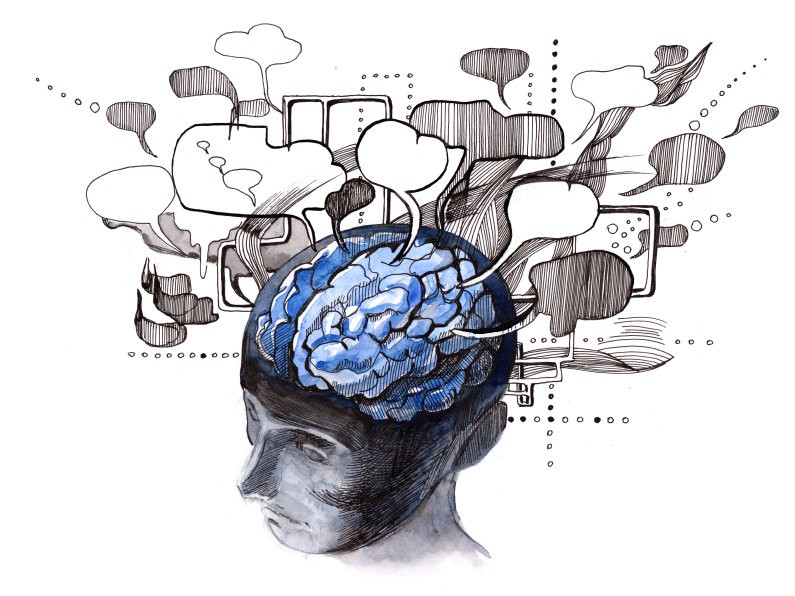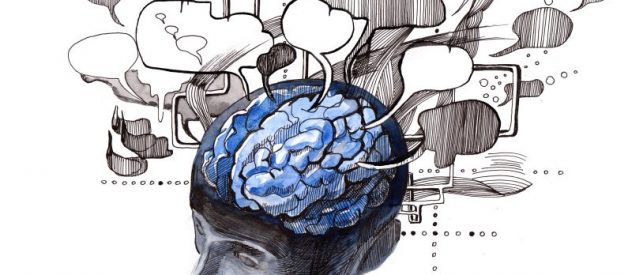 Source: Google
Source: Google
It?s Friday night and you come home after a long evening of drinking and leave your phone somewhere in your house. The next morning, although you remember coming home, you cannot remember where you left your phone. That evening, after a couple of pints with friends, you remember you left your phone under the sofa in the living room. How did you not think of that!
Similarly, how often have you walked into a room, forgotten what you went in for, but the second you go back to where you were you remember what you needed? Annoying, right?
This is the concept of state-dependent learning, where it is difficult to recall information when in a different state ? meaning either situation, mood or activity level ? but you can easily retrieve that information when back in the original state. This idea is also referred to as ?dissociation of learning?, meaning separate memories are encoded in different states, making it difficult to recall the memory if not in the state in which it was made. This phenomenon has been extensively described by psychologists, both in simple recall experiments in humans to imaging studies in animals, and now neuroscientists are trying to determine its basis in the brain.
One of the classical psychological examples of state-dependent learning was conducted in 1975 by Godden & Baddeley, who aimed to investigate the effects of environmental context on recall ability. They took 18 participants and asked them to try and remember as many words as possible from a list 38 unrelated words. The catch? Some participants learnt the words on dry land, the others heard them 20ft underwater. This created both distinct contexts for learning, as well as a stressed state which the investigators hypothesised would be sufficient to produce different levels of recall with testing. 24 hours after learning, the participants were asked to recall as many words as they could, either in the same environment that they learnt them, or on land if they were originally underwater, and vice versa. Participants performed on average 50% better when learning and recalling in the same state, whereas 40% more words were forgotten when the environment changed, suggesting some state-dependent learning of the words.
Nonetheless, this experiment has the obvious caveat of the environments being different ? although the participants were from a diving club so had some experience of being underwater for prolonged periods, the sensory environments will have been very different, potentially altering the amount of attention the participants were able to pay to the words. Therefore, the effect seen cannot be solely attributed to the different states the participants are in. This was also a relatively unrealistic task ? it?s hard to imagine a situation where one would have to recall a string of unrelated words underwater, meaning this experiment lacks ecological validity, making it difficult to generalise to other situations. Nonetheless, as a proof-of-principle experiment, it nicely demonstrates the differences in memory capacity that can be produced when learning and recalling in the same state.
Going back to our example of being drunk, in 1969 the effects of a drunken state on memory retrieval were tested by Goodwin and colleagues. 48 male medical students were asked to perform four memory tasks, either sober or after drinking alcohol. In these tasks, learning transfer was better when the subject in question was intoxicated for both learning and recall then when they changed states between tasks. Although understandably performance was best when participants were sober throughout, in a word association task participants made fewer errors when recalling their previous associations when drunk in both sessions compared to when they were intoxicated in their first session then sober in their second. Similarly, participants performed worse on a rote-learning task when they learnt sentences drunk and had to remember them sober compared to being intoxicated for both learning and recall. This demonstrates that being intoxicated is a distinct brain state, and this state can determine the extent to which a participant is able to retrieve previously-learnt information.
While in no way advocating getting drunk to help later recall of information, the principle of state-dependent learning is clear. But this isn?t just a human phenomenon and has been extensively investigated in animals using more sophisticated techniques than drunk medical students! In fact, the first example of state-dependent learning was in dogs conditioned to flex their legs when treated with curare, a naturally-occurring drug that blocks nerve impulses to the muscles and hence prevents muscle contraction. They showed that when dogs were conditioned with curare, they could only elicit the reflex when also in the drugged state. Similarly, if conditioned in the non-drug state, they could only produce the movement when in the same state (Girden & Culler, 1937). Pharmacological agents are also commonly used in rodent studies to produce different states. For example, many psychoactive drugs including benzodiazepines (used to treat anxiety) and amphetamines have been shown to produce discrete states that alter memory recall. The differing effects of drugs that affect arousal, as lots of psychological medications do, suggest state-depend memory could be based on the balance of excitatory and inhibitory activity in the brain at the time of learning. Recording brain activity using electroencephalography in rats has also shown global rhythmical brain activity is altered by drugs such as phenobarbitone (a now discontinued antiepilepsy drug). These changes correlated with the disruption of the learnt responses in the non-drugged state (Sadowski & Longo, 1962), suggesting a change to the overall levels of brain activity, indicative of different brain states, is driving these differences in ability to recall memories in different states.
Due to difficulties in recalling information when not in the original state, state-dependent learning can manifest as a memory retrieval deficit. Under pressure, you may forget important information that you knew by heart just moments before. However, there are ways to both overcome and use this phenomenon to our advantage. One potential use for the knowledge of state-dependent memory is in the context of exams, where being in the same brain state during revision as in the exam would be beneficial in memory recall. It would be pretty difficult to revise in exactly the same state that you?ll be in the exam ? you usually can?t revise in the exam room or artificially produce the nerves and adrenaline you feel before a test. However, getting into a calm state of mind both during revision and before the exam may help. Thinking back to the underwater recall experiments, when the participants? stress levels differed, they were less able to remember the words they?d heard. Therefore, going into an exam at the same relaxation level as during revision may help recall. This could be done by listening to the same song before starting work or reading a certain passage that you find calming. Any way to get yourself into the same headspace before an exam as you learnt the material in will help you recall that key information.
Another example of the use of state-dependent memory is in depression. Studies have shown that patients are more likely to recall previously-learnt information when they learnt and recalled in the same mood. This can also be linked to the idea of negative attentional bias in depression. This states that depressed patients view situations or interactions in a more negative way than healthy people. According to state-dependent learning, this would suggest that if a patient?s mood improves following antidepressant treatment, they are more likely to remember happy associations made in a good mood, hence they continue to feel better. Unfortunately, this also means that if they?re in a low mood, patients are more likely to recall associations they made in a low mood, and hence the depression exacerbates itself.
State-dependent learning and memory clearly affects many parts of our lives, most of the time without us realising. Its use in situations where we need to recall information, such as exams, or when we want to preferentially learn positive associations, in the case of depressed patients, shows how powerful a mechanism it really is and its potential in enhancing our capacity to recall information. While drinking to remember isn?t a good idea, it might give you an idea as to where to find that lost phone!
Girden E & Cullen E. (1937) J Comp Psychol., 23: 261?74.
Gooden DR, Baddeley AD. (1975) British Journal of Psychology, 66(3).
Goodwin DW, Powell B, Bremer D, Hoine H, Stern J. (1969) Science, 163(3873): 1358?60.
Radulovic J, Jobasevic V, Meyer MAA (2017). Curr Opin Neurobiol., 45: 92?8.
Sadowski B & Longo VG. (1962) Electroencephalogr Clin Neurophysiol., 14: 465?76.


